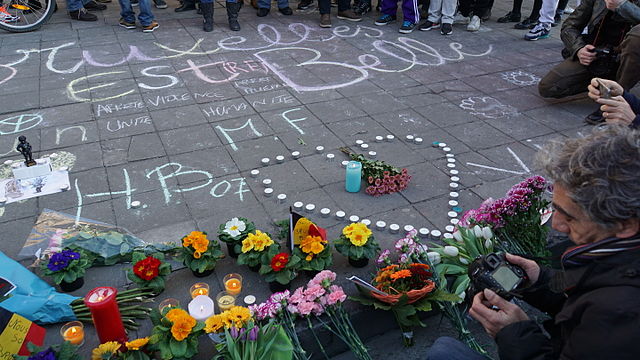Nearly 200 victims of the 2016 Brussels attacks are denouncing the government for failing to properly assist them in dealing with the complex health and legal consequences of having lived through the terror attacks.
In the run-up to the trial on the coordinated attacks in which 32 civilians were killed on 22 March 2016, Life4Brussels, a non-profit association representing victims of the attacks said that many among them feel left behind and unassisted by the government.
"Many feel like they are being victimised a second time," Valérie Gérard, legal representative of the victims, said in an interview with BX1. "They were victims a first time during the attacks and a second time now, since they feel their demands are not being heard."
A total of 196 victims have joined the association, with many among them recounting the difficulties encountered as they attempted to navigate the administrative maze in their plight for treatment and compensation.
"The victims who have become members of our association feel, without exception, alone and abandoned," the non-profit wrote in a Facebook statement, adding that some among them had even decided give up their rights by dropping administrative proceedings they had undertaken.
Gérard denounced the government's failure to implement the measures of a special parliamentary committee tasked with issuing recommendations in the aftermath of the attacks.
A central demand of the association, which Gérard said has gone unheeded by the government since 2017, is the creation of a guarantee fund which would rid victims of having to address a host of different interlocutors to obtain different types of compensation or insurance, including to pay for health expenses.
The absence of a government response has left some victims exposed to what Gérard described as "inappropriate" treatment from employees of insurance companies tasked with assessing victims' states.
"There was, for example, one victim who told us that an insurance employee threw a pen to the floor, asking them to pick it up in order to determine if they were in good shape," Gérard said.
"These are some of the treatment victims have been subject to, which gives them the impression of being treated inappropriately" after living through the attacks, she added.
As Belgium prepares to try the suspected perpetrators behind coordinated bombings in Brussels Airport and Maelbeek metro station, the non-profit has been stepping up efforts to make sure the victims are informed and their demands heard.
"We have set up a collective of lawyers which, initially, will seek to assist the victims in the context of the [upcoming] criminal trial," Gérard said, after the non-profit announced at the start of October that they were holding sessions offering free legal advice to the victims.
No fixed date has been set for the trial, in which over 800 plaintiffs are expected to take part, with federal prosecutors wrapping up the investigation into it in June, after three years and three months of inquiry.
Gabriela Galindo
The Brussels Times

